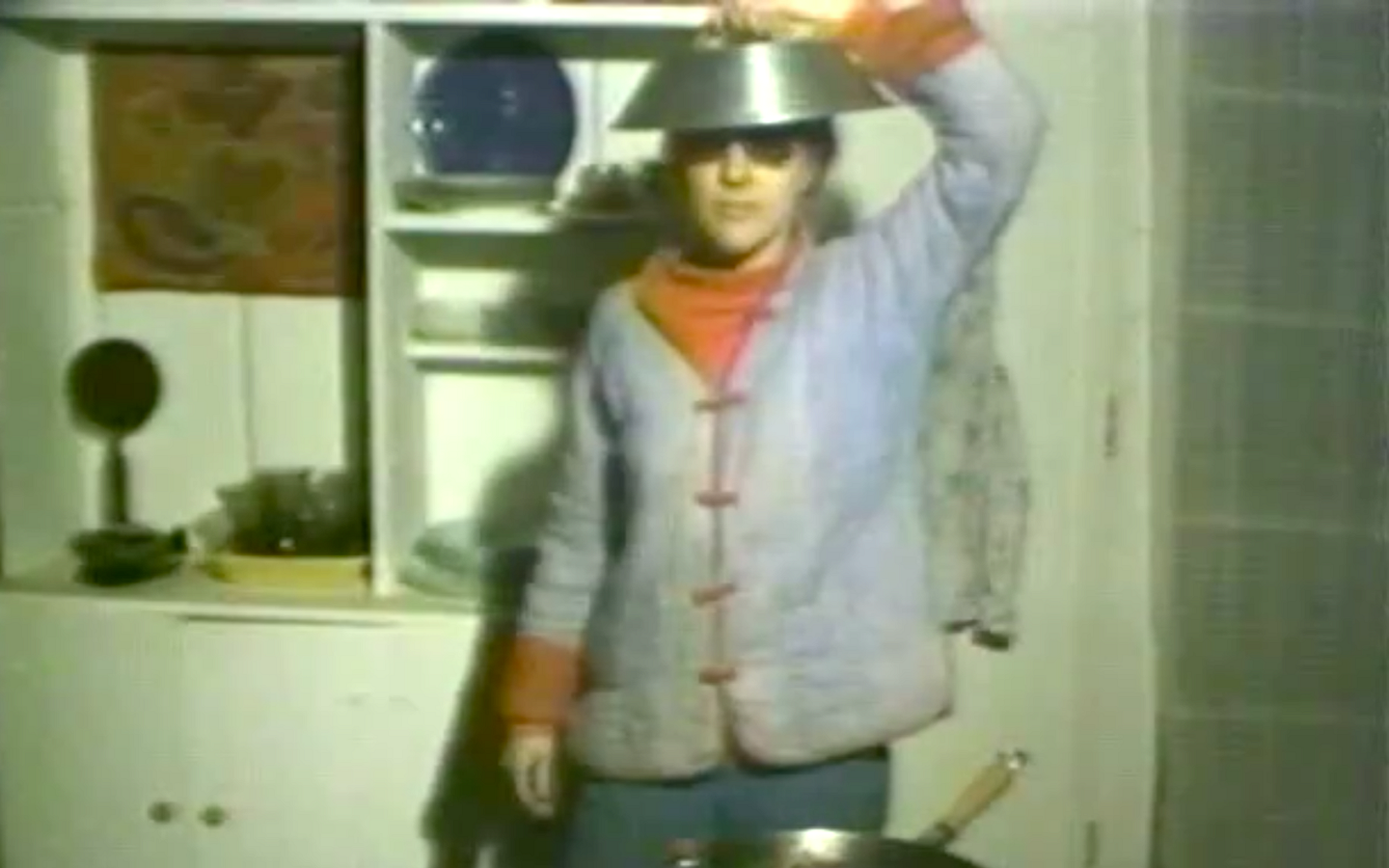March 18–20, 2022
e-flux Screening Room is very pleased to present Domination and the Everyday: Videos and Films by Martha Rosler, a three-day screening program of moving-image works by Martha Rosler accompanied by discussions featuring Rosler, scholar Nora M. Alter, and artists Ernie Larsen and Sherry Millner taking place in the evenings of Friday through Sunday, March 18-20, 2022. Throughout the three days, a projection of Rosler’s silent Museums will eat your lunch (2013, 2 minutes) will be on view at the Screening Room library, where a reading group with Rosler will also take place as a post-script to the program (date and more details to be announced).
“I think that feminist art is, most fundamentally, a means of provoking critical awareness,” Martha Rosler wrote in her statement included in the 1977 exhibition What Is Feminist Art? at the Woman’s Building in Los Angeles. The show was composed of answers to that question sent to a network of women by the feminist activists Ruth Iskin, Lucy Lippard, and Arlene Raven with the introductory line “if you consider yourself a feminist…” Rosler ended her page-long statement explaining her position with the hand-written note: “This means never to give up on the push for real social change!”
Rosler’s artistic oeuvre spans a number of media, including photography, sculpture, performance, writing, and video, all of which serve as socially responsible tools for the creative and critical examination of the modern condition of life. Anchored in consistent political commitment, Rosler’s video works explore gender roles, inequality, labor, gentrification, processes of power and control, and imperialist American politics. All these themes are mirrored in the three screenings that present a selection of Rosler’s video works from 1974 to the present, combining rarely seen works with ones that have been foundational to the history of American video art.
Domination and the Everyday: Videos and Films by Martha Rosler is the inaugural event of “Revisiting Feminist Moving-Image Art,” a series of screenings at e-flux Screening Room aimed at revisiting the origins, contexts, developments, and impact of feminist video art and experimental cinema around the world from the 1960s through today.
Tickets for the program are available here.
Program
Friday, March 18, 2022, 7–9pm
Domination and the Everyday: Videos and Films by Martha Rosler—Part I
Screening and Q&A with the artist
Losing: A Conversation with the Parents (1977, 18 minutes)
Martha Rosler Reads Vogue: Wishing, Dreaming, Winning, Spending (1982, 25 minutes, with Paper Tiger Television)
The East Is Red, The West Is Bending (1977, 20 minutes)
Backyard Economy I and Backyard Economy II (Diane Germain Mowing) (1977, 10 minutes)
Saturday, March 19, 2022, 6–8:30pm
Domination and the Everyday: Videos and Films by Martha Rosler—Part II
Screening and discussion with Martha Rosler, Ernie Larsen, and Sherry Millner
South Africa: Crossing the River Without a Bridge (2016, 60 minutes)
How Do We Know What Home Looks Like? The Unité d’Habitation de Le Corbusier at Firminy, France (1993, 31 minutes)
Prototype (God Bless America) (2006, 1 minute)
Sunday, March 20, 2022, 6–8:30pm
Domination and the Everyday: Videos and Films by Martha Rosler—Part III
Screening and discussion with Martha Rosler and Nora M. Alter
Domination and the Everyday (1978, 32 minutes)
If it’s too bad to be true, it could be DISINFORMATION (1985, 17 minutes)
Secrets from the Street: No Disclosure (1980, 12 minutes)
Chile on the Road to NAFTA, Accompanied by the National Police Band (1997, 10 minutes)
Flower Fields (Color Field Painting) (1974, 3 minutes)
Because This Is Britain (2012, 3 minutes)
Pencicle of Praise (2018, 12 minutes)
Martha Rosler utilizes various media in her work, primarily video and photography, and also installation and sculpture; she also writes about art and culture. Her work has for decades considered matters of the public sphere and mass culture; war and geopolitical conflict; housing, urbanism, and the built environment, and systems of transportation—especially as these affect women. Many of her projects have been extrainstitutional or developed and enacted with groups of people. Rosler sees her work, her teaching, and her writing as continuations of a broader engagement with the currents of cultural critique and social and political change. Her work may best be summed up as both a conceptual art and an activist practice—focused on questions of representational form but joined, however uneasily, to a commitment to political agitation. Video, which she adopted in its infancy, presented itself as at the crossroads of both. Rosler spent the 1970s in California and Canada. In 1980, she returned to her native Brooklyn, where she lives and works.
e-flux Screening Room is a 75-seat cinema in Brooklyn presenting artists’ cinema, video art, and experimental film. The space is designed to welcome encounters between curated screenings of today’s key moving-image works from all parts of the world and conversations with artists, curators, and theorists through discursive events, seminars, and lectures. Technological and economic paradigm shifts in recent decades have caused moving-image art to become even more multi-disciplinary, geographically dispersed, and ephemeral than ever before, while prompting new ways of producing, exhibiting, and disseminating films and videos that market-based film festivals fail to understand. e-flux Screening Room is dedicated to exploring the space between experimental film, cinema, and contemporary art where such emergent approaches to moving-image art can flourish. The Screening Room is an educational space to study and learn about the histories of moving-image art. It is a venue where avant-garde films of the 1920s, underground and experimental film movements of the 1960s, expanded cinema practices, late twentieth-century video and installation art, and twenty-first century artists’ films can be contextualized within an overarching focus on artists and movements from parts of the world excluded from or unfamiliar to dominant canons of the film and art industries.
For more information, contact program [at] e-flux.com.

